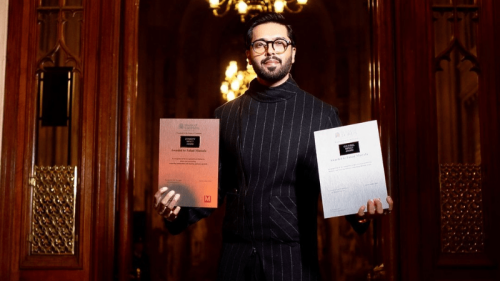
ELEGY, or marsiya, is a poetic genre in Urdu that bewails the departed souls and praises them. Dirge, or nauha, often a concluding part of longer Urdu elegies, is a shorter poem bemoaning the dead and remembering them with tenderness. Dirge is sometimes sung, too.
Mir Anees (1803-1874), one the foremost poets of Urdu marsiya, is often preferred over Dabeer, the other maestro. Steering clear of the debate, here we can vouch that both are the best in Urdu, but Anees is more popular perhaps because of his flowing language adorned with Urdu’s colloquial yet standard usage. Yet at times Dabeer surpasses Anees in certain qualities and he is no lesser of a poet than Anees.
Despite Anees’s greatness, collecting his entire poetic works has not been easy. In addition to marsiya, Anees was one of the best poets of Urdu ruba’i, or quatrain. Ali Jawad Zaidi had edited and published entire text of quatrains by Anees in 1985 and later on Taqi Abidi, too, published a collection of Anees’s quatrains. But Zaidi’s work is more scholarly and, hence, authoritative.
As for elegies, Anees did not like to get his elegies published for certain reasons, “commercial value” being one of them, as put by Timsal Masud. And it was only after Anees’s death that the idea of collecting and publishing Anees’s poetic works dawned again. It was none other than Munshi Naval Kishore, the legendary publisher from Lucknow, who published the first volume of Anees’s poetic works in 1876. The fourth and last volume came out in 1877.
Syed Murtaza Husain Fazil Lakhnavi in his foreword to Muntakhab Marasi-i-Anees, subtitled Vaaqiaat-i-Karbala Marasi-i-Anees Ke Aaeene Mein (Lahore, 1974), a selection of Anees’s elegies, has mentioned that the first volume published by Naval Kishore included 28 elegies, 29 quatrains and three salaams. Three more volumes were published and the entire text presented in these four volumes incorporated 108 elegies, 268 quatrains and 31 salaams, adds Fazil Lakhnavi. Later on, more books were published by different publishers and they included different texts of Anees’s Urdu poetry. But many errors had crept in and different versions published by different publishers had slightly different texts.
Fazil Lakhnavi has lamented in his foreword that some compilers, such as Ali Hyder Nazm Tabatabai, Masood Hasan Rizvi Adeeb and Muhazzab Lakhnavi also edited and published various elegies by Anees, but all of them are “lacking in references and other important details” about the original manuscripts and sources from where these texts were extracted, though these scholars are respected for their research works and editing acumen.
Fazil Lakhnavi himself compiled just 12 elegies by Anees but he took every possible care in compiling them and in addition to handwritten old manuscripts he also consulted different editions of Anees’s poetics works. He mentioned with each and every marsiya the sources and penned useful annotations. His work was reprinted by Majlis-i-Taraqqi-i-Adab, Lahore, in 2000.
But the issue of authentic version of Mir Anees’s 108 Urdu elegies stood unresolved. Karachi’s Aaj Ki Kitaben has published a collection of Anees’s elegies in three volumes, edited by Nayyar Masud and Timsal Masud. It seems that the question of authentic text of Anees’s 108 elegies should be settled now as the work published is based on the research work initiated by Masood Hasan Rizvi Adeeb and furthered by Nayyar Masood. Both of them are reputed as scholars and were true lovers of Anees. Timsal Masud has described in detail how Anees used to alter couplets or add some stanzas to his elegies and that is why various versions of same elegies are traced even in the most authentic manuscripts.
Timsal Masud collated many published versions and added to 108 elegies three more, found in latter-day editions published by Tej Kumar Press. Masood Hasan Rizvi Adeeb was convinced that these three elegies were compiled by Anees. Thus we now have a new, corrected version of Anees’s 111 Urdu elegies.
Timsal Masud narrates how the second phase of tracing and editing Anees’s elegies began in 1971 when a committee was formed to prepare an authentic version of Anees’s poetic works. Masood Hasan Rizvi Adeeb was entrusted with the task as he was already considered an authority on Anees and had in his personal collection several manuscripts of Anees’s works. But due to some reasons Adeeb abandoned the task and it was never finished. Then Nayyar Masood picked up work left unfinished by his father and decided to prepare a better version of Anees’s elegies rather than editing his entire works. But Nayyar fell ill after a while and Timsal had to finish it.
So now we have a corrected and authentic version of at least 111 elegies by Anees, a gigantic task achieved by hard work of about 50 years and three generations.
Published in Dawn, June 5th, 2023














































Dear visitor, the comments section is undergoing an overhaul and will return soon.